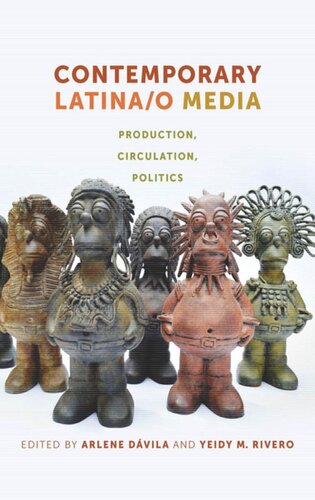

Most ebook files are in PDF format, so you can easily read them using various software such as Foxit Reader or directly on the Google Chrome browser.
Some ebook files are released by publishers in other formats such as .awz, .mobi, .epub, .fb2, etc. You may need to install specific software to read these formats on mobile/PC, such as Calibre.
Please read the tutorial at this link: https://ebookbell.com/faq
We offer FREE conversion to the popular formats you request; however, this may take some time. Therefore, right after payment, please email us, and we will try to provide the service as quickly as possible.
For some exceptional file formats or broken links (if any), please refrain from opening any disputes. Instead, email us first, and we will try to assist within a maximum of 6 hours.
EbookBell Team

0.0
0 reviewsThe cultural politics creating and consuming Latina/o mass media.
Just ten years ago, discussions of
Latina/o media could be safely reduced to a handful of TV channels, dominated
by Univision and Telemundo. Today, dramatic changes in the global political
economy have resulted in an unprecedented rise in major new media ventures for
Latinos as everyone seems to want a piece of the Latina/o media market. While
current scholarship on Latina/o media have mostly revolved around important
issues of representation and stereotypes, this approach does not provide the
entire story.
In Contemporary Latina/o Media,
Arlene Dávila and Yeidy M. Rivero bring together an impressive range of leading
scholars to move beyond analyses of media representations, going behind the
scenes to explore issues of production, circulation, consumption, and political
economy that affect Latina/o mass media. Working across the disciplines of
Latina/o media, cultural studies, and communication, the contributors examine
how Latinos are being affected both by the continued Latin Americanization of
genres, products, and audiences, as well as by the whitewashing of “mainstream”
Hollywood media where Latinos have been consistently bypassed. While focusing
on Spanish-language television and radio, the essays also touch on the state of
Latinos in prime-time television and in digital and alternative media. Using a
transnational approach, the volume as a whole explores the ownership,
importation, and circulation of talent and content from Latin America, placing
the dynamics of the global political economy and cultural politics in the
foreground of contemporary analysis of Latina/o media.